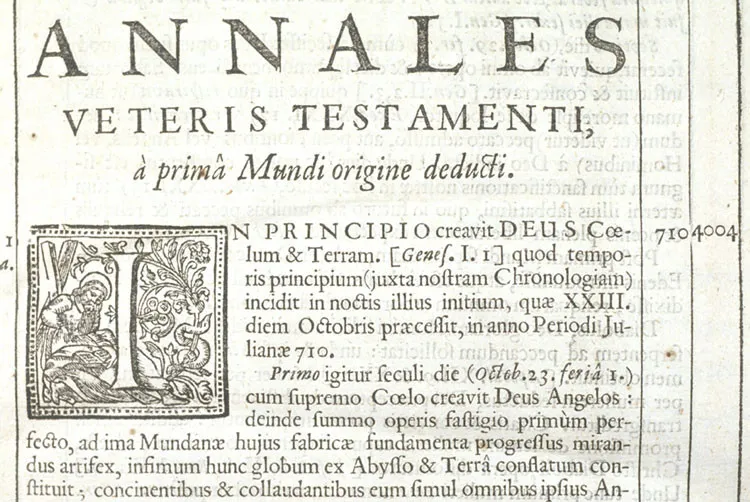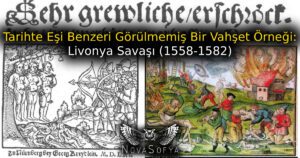Historiography and the Birth of the Annales School

The Anneles School, which has recently increased its influence in world historiography, has opened the doors of new fields in the science of history. This school, which adopted an understanding of historiography that cooperated with various sciences such as geography, sociology, economics and psychology, soon influenced almost all modern historians.
Zeki Velidi Togan expressed the importance of the science of geography in historiography with the following words: “The fact that geography is a science that helps history does not need to be explained. A history book that is not based on geography is considered a novel, not a history.” At this point, it was known that the science of geography was a twin brother of history; whereas the historians of the Anneles school had created a new understanding of historiography by blending geography, economics, sociology, etc.
The foundations of this school, which took an attitude against the historiography of the “great man” and turned to issues such as “people, culture, socio-economy”, date back to the Enlightenment period. As a matter of fact, the understanding of historiography that prevailed until the Enlightenment period was to investigate great people who had achieved great things in history.
During the Enlightenment, the first objections to this understanding were formed. Voltaire, for example, put forward the early works of social and economic historiography and opposed a theological conception of history. He argued that the historian, acting as a theologian, a storyteller, should no longer be concerned with individual events, but since he had the spirit of the people and the nation, the nation should turn to the values, moral criteria, and general qualities of the life of the community, which are the expression of traditions.
The most obvious example of his attitude lay in these sentences: “Only the history of kings was written, the history of the nation was never written. It was as if for 1400 years there were only kings, ministers and generals in Gaul, but our customs, laws, customs, spirit were nothing?”
David Hume, whom Ahmet Cevizci describes as one of the most important representatives of Enlightenment thought, has dealt with the history of England in a holistic way in his book History of England. While Hume made comparisons according to kings and communities from time to time, he also used numerical data in his analysis in economic matters.
Again, the other philosopher who considers the study of history as a whole is Immanuel Kant. According to him, history is a process that proceeds towards rationality. To study this progress, it is necessary to analyze the development of humanity as a whole. The goal of history is to reach a social system in which man behaves according to moral laws and lives in freedom. In this context, Kant perceived history as a whole; a historiography that deals exclusively with kings, dynasties and states; he thought that he could not fully reflect the incarnation of humanity.
The first attempt among historians to study history in conjunction with other branches of science was made by Edward Gibbon. In his History of the Decline and Fall of the Roman Empire, Gibbon explored the decline of the Roman Empire with a problem-oriented approach, and based his analysis on multiple causes, from contemplation to faith, from there to the economic situation, the way of life, and the military structure.
The XIX century is an important century in terms of historiography. In this century, history was not evaluated in the context of purely speculative philosophies of history, but focused on changes in both the methodology of history and the choice of history subjects. Historians try to prove that history is a science; they used primary sources, turned to archives, and placed history in universities to ensure specialization. The professionalization of history brought with it the scientific discourse style. Leopold von Ranke, one of the building blocks in the development of scientific history, argued that history should be written without interpretation. In this way, he became the founder of modern historiography.
According to Ranke, in doing his job, the historian should only evaluate historical facts “as they are,” independent of any political aims, philosophical aims, moral values, and attitudes, and with the awareness that the purpose of history is not to judge the past or teach moral lessons. It is important whether there is an irrational or unconscious motivation in the historian’s research, selection and presentation.
The historian, who must first study politics and foreign policy, should write only as they really are. For Ranke, the systematic pioneer of principles such as treating events objectively, subjecting documents to criticism, and conveying events as they are, the historian must methodically evaluate historical facts in their own conditions in parallel with these ideas and use critical techniques and primary sources.
According to him, there is no way to understand the forces that are influential in history in abstract concepts and terms, a careful evaluation of documents is sufficient in the reconstruction of the political narrative in history, especially in the case. To “show reality as it is” in the sense of revealing truth is to liken historical facts to natural scientific facts, which can be independent, atomic, and completely indifferent to the state of the observer.
While the naturalist creates his examinations according to tube, microscope and experimental methods; The historian should also be able to approach the texts carefully and critically, using archaeology and linguistics. For Ranke, history must necessarily be written subject to criticism of the documents. At the same time, he has shown exemplary studies on how historians should consider archives as the most important element for the production of historical knowledge.
In the discipline of history, Ranke was a pioneer in this field and wanted to separate history from all kinds of philosophy, political science and sociology and turn it into a self-sufficient science, and he thought that political history, which developed against social history, was the work of experts, and that culture, social and art history was the domain of amateurs.
In general, Ranke emphasized archival works as a reflection of the attitude of overvaluing primary sources, as well as turning historical issues to the detriment of social and cultural history and event-oriented political history in favor of it. This situation would take on such a character that in the second half of the 20th century, the British Marxist historian Eric John Ernest Hobsbawm (1917-2012) would consider the rapprochement of economic and social history as a departure from the Rankeci-style approach to history.
Towards the end of the 19th century, although Rankeci historiography was widely accepted, objections to this historiography were also raised from various angles. These objections were not to the idea that history should be a professional discipline and thus scientific, but rather to the subjects preferred by historians, as stated above.
According to the American historian George Gerson Iggers (1926-2017), the biases of institutionalized historiography in universities based on political historiography were questioned, it was argued that the subject of modern history should be expanded, that society, economy and culture should have a greater place, and that history should be more closely related to empirical, that is, empirical social sciences. In Germany, Karl Lamprecht rejected the Rankean historiography’s focus on political and individual-oriented history.
The question of how to bring together the history of the great variety of activities of man in a holistic form and understandable structure was the main problem of the historian. Lamprecht, who was the most important cultural historian of Germany at the end of the 19th century, tried to incorporate the findings of disciplines such as scientific psychology, sociology, anthropology, art history into history in German universities in the process of institutionalization. Lamprecht, who advocated the generalizing method rather than the singularity, thought that cultural historiography should be given importance and that historians should also turn to interdisciplinary cooperation, which would increase in importance in the next century.
Another of those who opposed the Rankean conception of history in Germany was Jacob Burckhardt, whom Lucien Febvre (1878-1956) would call “one of his masters.” History is the least scientific of the sciences, he said. He saw history as the domain of interaction between the state, religion and culture. According to the historian, while the state, which is one of the three elements that have ensured order in the world of humanity since eternity, is developing in line with wrong models, religion has also lost its influence. In this period, when values were eroded a little more over time, only culture remained as the spiritual basis for modern man, and so the historian preferred cultural history extending to the fields of art, thought and literature, eliminating the non-broad boundaries of politics, diplomacy and war. Rather than a narrative-based history following a sequence of events, Burckhardt had a similar conception of historiography based on the circumstances of the 1930s and 1940s as examined by Marc Bloch (1886-1944) and Fernand Braudel (1902-1985) for a particular time.
The Frenchman Jules Michelet, who was also respected in France by Annales historians such as Febvre and Braudel, called for the writing of “a history of the people who suffered, worked, decayed and died, lacking the power to express their suffering.” Michelet, who wanted to create a holistic history, became the first historian to deal with witches, heresies, the excluded and folk culture, revealing all the stakeholders related to the realities of life. In the 19th century, the principle of historiography by “referring to documents”, which Ranke adopted as a principle in his historiography, was also valid for Michelet. But he also embraced using unwritten sources to capture the “French spirit.” Likewise, when he was writing the history of the poor, self-sacrificing, loyal people, he was mingling with them. So he was using that oral history as well. As a result, Michelet was considered a predecessor of the Annales school.
Objections to the event-politically oriented conception of history, symbolized in the concept of “Great Man” historiography in the twentieth century, arose not only from Europe, but also from all over the world.
Not only in France, Belgium, the United States, Scandinavia, but even historians in Ranke’s country, Germany, began to criticize the Rankean paradigm and advocate an understanding of history that took into account social and economic factors. Thus, the masses began to take part in the writing of history. This was the process that paved the way for the birth of the Annales school. The sociologist Emile Durkheim promoted the convergence between sociology and history. He presented the French historian Fustel de Coulanges’ proposition that “true sociology is history.”
Like Durkheim, Herbert Spencer wrote that “biographies of great men do not shed any light on social science.” Henri Berr argued that history should be written from the bottom, that is, from society upwards. Under all these circumstances, Lucien Febvre and March Bloch published the Annalesd’Histoire Economique et Sociale (Annals of Economics and Social History) in 1929. The first generation of Annales historians, who were fed by the criticisms of the historiography understanding before them, advocated that historiography should focus on all possible human activities instead of an event-politically oriented understanding of history, that historians should benefit from other disciplines, and that an analytical and problem-oriented historiography should be made.
Lucien Febvre’s first important work and doctoral thesis, Phillippe II et la Franche-Comte (Paris, 1912), dealt with political, religious, and social history. An influential element in Febvre’s thesis was the introduction to the geography of the region.
The introduction to the thesis is Braudel’s La 2. It was similar to the Mediterranean and the Mediterranean World in the Philippe Period. The work began by describing the impact of geographical conditions on a region. In the study, which focused on political developments, sociodemographic situations, religion and mentality, the effects of geography on the region were examined not only in the nature of descriptive geography, but also in the geographical-historical logic.
Febvre’s interest in historical geography is reflected not only in Franche-Comte but also in his work La Terre et L’Évolution Humaine (The World and Human Evolution). In this work, Febvre first addresses the “problem of geographical influence.” In the study of the problem of land and society relations, according to Febvre, it is important to have a general geographical entry in a study of scientific synthesis.
In his teacher Paul Vidal de La Blache’s discussion with another geographer, Ratzel, on the question of geo-determinism and man’s freedom of action, Febvre sided with Blache, arguing that in history there are only possibilities, not necessity. Ultimately, the factor that determines the choice of people and society is more lifestyles and attitudes than the physical environment.
A name of importance in Febvre’s upbringing from a different angle was the German geographer Ratzel. Ratzel was another pioneer of human geography; but unlike Vidal de la Blache, he placed more emphasis on the influence of the physical environment on human destiny. In this debate between geodeterminism and human freedom of action, Febvre criticized Vidal, emphasizing that there could be various responses to the conditions imposed by a particular environment. According to Febvre, one society could see a river as an obstacle, while another society could consider it as a road. In the interaction of human-geography, man can choose any of the conditions imposed on him by geography, transform these conditions, and therefore human freedom in the face of the environment can be accepted.
Like Febvre, Bloch, who was interested in geographical history, wrote a treatise in 1913 on the Île-de-France region, one of the twenty-six regions of France and located in the north of the country, where he emphasized the influence of geography on the development of society.
Before these activities, in which he held important positions, Braudel stated the importance of interdisciplinary work in his 1958 essay “Histoire et Sciences Sociales: La Longue Druée (History and Social Sciences: The Long Term)”. Underlining that first of all, social sciences must be in cooperation or they cannot develop, Braudel states that history has learned a lot from other social sciences and that history can teach them a lot.
According to Braudel, in fact, although the social sciences seem to stay within their own boundaries and wish to do so, they are in fact constantly violating each other’s boundaries. According to him, all social sciences, including history, are influenced by each other. They speak or may speak similar language. However, history has a superiority in interdisciplinary exchange. Because time is what conditions all social sciences, history is central. According to him, “time, duration, and history actually impose themselves on all the humanities, or should impose them.
In Braudel’s understanding of history, which sees everything as interconnected and related, everything affects each other. According to Braudel, none of the sciences that make up the social sciences alone can know the universe. Interdisciplinary work, on the other hand, is not to become competent in all disciplines, but to use the necessary methods and outputs of different disciplines.
Braudel places special emphasis not only on sociology, but also on geography, demographics, economics. History also mentions that the discipline has taken from economics many concepts such as cycles, intermediate circuits, cyclical movements (the phases of which extend to five, ten, twenty, fifty years). According to Braudel, who had an important influence on the works of geography, nevertheless, the proof that geographical determinism alone does not dominate everything is immediately revealed by the examination of the borders, the marginal areas of the black continent, which occupies only a part of Africa. When it comes to understanding the black continent, geography takes precedence over history. Although geography alone is not enough, it is still more meaningful.
Braudel, who always tries to achieve unity between spaces, themes and disciplines, tries to realize this goal in the Mediterranean World as well. Although it tries to show both the social, economic and cultural specificities and differences of the countries surrounding the Mediterranean with its comparisons, it still sees the Mediterranean as a whole. Braudel, who mainly tries to reach holism and global history in his work, constantly resorts to comparisons for this reason. In the Mediterranean World, Braudel not only studied the Mediterranean as a whole, but also transcended the borders of the Mediterranean.
Braudel’s holistic understanding of history on the plane of space was transforming into a global conception of history. The history of the Mediterranean extended not only to the Mediterranean but also to the Sahara, to the Atlantic. Expressing that he wants to examine the Mediterranean as a whole, not as a fragment, he also criticizes the style of traditional historiography that disintegrates history. In the concluding part of The Mediterranean World, Braudel emphasizes that geographical, individual-event history, which corresponds to three different temporalities, is intertwined and therefore emphasizes once again that his aim is to reach holistic history.
Braudel, who always sees the Mediterranean as a whole, is also holistic in his statements. The golden rule to be re-recorded: Everything affects everything. Therefore, it is understandable that Braudel’s importance to geography-climate takes up pages of space. Because climate affects not only the economy, society, politics, but also culture and mentality. The climate and plant structure of the Mediterranean, which is not very fertile, has even affected the mentality of the people in the Mediterranean geography to be content with less. Geography is always important in Braudel because geography influences the economy as well as politics.



